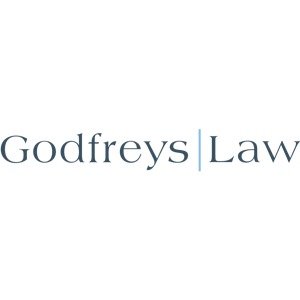Best Wrongful Termination Lawyers in Christchurch
Share your needs with us, get contacted by law firms.
Free. Takes 2 min.
List of the best lawyers in Christchurch, New Zealand
About Wrongful Termination Law in Christchurch, New Zealand
Wrongful termination refers to a situation where an employee's contract is ended in a manner that breaches one or more terms of the employment agreement or violates principles of fair treatment as per employment law. In Christchurch, New Zealand, this could involve a termination without a valid reason, failure to provide appropriate notice, or breach of statutory protections. Employment relations in New Zealand are governed by the Employment Relations Act 2000, focusing on promoting fair treatment and preventing unjust dismissals.
Why You May Need a Lawyer
If you believe you've been wrongfully terminated, seeking legal advice can be crucial. A lawyer specializing in employment law can help navigate the complexities of your case. Common situations that might require legal help include being dismissed without proper process, facing retaliation for whistleblowing, experiencing discrimination, or disputes over contractual terms. Legal assistance can also be essential in negotiating settlements or representing you in mediations and hearings.
Local Laws Overview
In Christchurch, employment law underlines the importance of fair treatment in the workplace. The Employment Relations Act 2000 is a critical piece of legislation that ensures employees are accorded justice and their rights are protected. Key aspects include the requirement for procedural fairness in dismissals, providing justified reasons for termination, and adherence to agreed terms in employment contracts. The law also recognizes unjustifiable dismissal claims that can arise when an employer dismissed an employee without a good reason or without following a proper process.
Frequently Asked Questions
What constitutes wrongful termination in Christchurch?
Wrongful termination occurs when an employer breaches the terms of an employment contract or dismisses an employee without following due process or without a legitimate reason as outlined in New Zealand law.
What should I do if I believe I've been wrongfully terminated?
If you suspect wrongful termination, it's essential to seek legal advice immediately. Document everything related to your termination and reach out to an employment lawyer to assess your situation.
How can a lawyer assist with my wrongful termination case?
A lawyer will evaluate your claim, offer guidance on your legal rights, help compile evidence, negotiate on your behalf, and represent you in legal proceedings if necessary.
What evidence do I need to support my claim?
Gather employment contracts, performance reviews, emails, and any documentation related to your termination. Evidence should support your claim of unfair treatment or breach of contract.
Can I claim compensation for wrongful termination?
Yes, if your case is successful, you may be entitled to compensation for lost wages, benefits, and possibly emotional distress or punitive damages, depending on the circumstances.
How long do I have to file a claim for wrongful termination?
In New Zealand, you need to raise a personal grievance within 90 days of the alleged unjust dismissal. Delays can invalidate your claim, so acting promptly is crucial.
What is a personal grievance?
A personal grievance is a complaint lodged by an employee against their employer, claiming unfair treatment or unjust dismissal. It can lead to mediation or employment tribunal proceedings.
Is mediation mandatory in a wrongful termination claim?
While mediation isn't mandatory, it's often the first step recommended to resolve employment disputes in New Zealand. It allows both parties to negotiate and potentially reach a settlement.
What is the cost of hiring a wrongful termination lawyer?
Costs can vary significantly based on the complexity of the case and the lawyer's experience. It's advisable to discuss fees upfront during the initial consultation to understand potential costs.
Can I handle a wrongful termination case without a lawyer?
While possible, handling a case without professional legal assistance can be challenging due to the complexities of employment law. A lawyer can significantly improve your chances of achieving a favorable outcome.
Additional Resources
For more information and support, consider the following resources:
- Employment New Zealand: Offers guidance on employment rights, resolving problems, and formal processes for disputes.
- Citizens Advice Bureau: Provides free, confidential advice on a variety of issues including employment rights.
- Mediation Services: Collaborate with providers offering mediation to resolve disputes efficiently.
Next Steps
If you need legal assistance in wrongful termination, start by gathering all relevant documentation regarding your employment and termination. Schedule a consultation with an employment lawyer in Christchurch who specializes in wrongful termination cases. They can provide a case assessment and guide you through the options available, helping you decide on the best course of action. Additionally, engage with mediation services if feasible, as many disputes are resolved through this initial step before reaching tribunal hearings.
Lawzana helps you find the best lawyers and law firms in Christchurch through a curated and pre-screened list of qualified legal professionals. Our platform offers rankings and detailed profiles of attorneys and law firms, allowing you to compare based on practice areas, including Wrongful Termination, experience, and client feedback.
Each profile includes a description of the firm's areas of practice, client reviews, team members and partners, year of establishment, spoken languages, office locations, contact information, social media presence, and any published articles or resources. Most firms on our platform speak English and are experienced in both local and international legal matters.
Get a quote from top-rated law firms in Christchurch, New Zealand — quickly, securely, and without unnecessary hassle.
Disclaimer:
The information provided on this page is for general informational purposes only and does not constitute legal advice. While we strive to ensure the accuracy and relevance of the content, legal information may change over time, and interpretations of the law can vary. You should always consult with a qualified legal professional for advice specific to your situation.
We disclaim all liability for actions taken or not taken based on the content of this page. If you believe any information is incorrect or outdated, please contact us, and we will review and update it where appropriate.
















